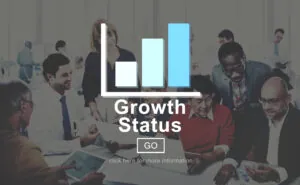Entrepreneurs often wear many hats, marketing, customer service, operations, and finance. But as your business grows, trying to do it all yourself can quickly become a roadblock to progress. The key to scaling efficiently isn’t about working harder; it’s about working smarter.
Through strategic automation, effective delegation, and consistent process improvement, small business owners can unlock growth, save time, and focus on what truly drives long-term success.
Whether you run a solo operation, lead a growing team, or manage multiple clients, these principles can help you simplify your workflow, increase efficiency, and create sustainable growth. Many of these strategies are also explored on The Accidental Entrepreneur.
The Power of Automation
Automation isn’t just for large corporations—it’s one of the most powerful tools small business owners can use to increase efficiency without increasing headcount.
From marketing to accounting, automation reduces repetitive work and minimizes errors, freeing you to focus on high-value tasks like strategy and relationship-building.
Practical examples of automation include:
- Scheduling social media posts or email campaigns in advance.
- Using a CRM (Customer Relationship Management) system to track leads.
- Automating invoicing, follow-ups, and payment reminders.
- Setting up templates for proposals and contracts.
The goal isn’t to remove the human touch—it’s to make space for it. Automation allows you to spend less time managing systems and more time connecting with clients and growing your business.
Delegate to Elevate
Delegation is one of the most underused yet most critical skills for business owners. Many entrepreneurs struggle with letting go of control, believing that no one can do the job as well as they can. But this mindset limits growth.
Delegation isn’t about dumping tasks—it’s about empowering others to take ownership and contribute their expertise.
Here’s how to delegate effectively:
- Identify your strengths and weaknesses. Focus your time on what you do best.
- Document your processes. Create clear SOPs (Standard Operating Procedures) for tasks you hand off.
- Hire or outsource strategically. Use virtual assistants, freelancers, or part-time specialists to fill skill gaps.
- Trust your team. Give them autonomy and accountability.
The best leaders don’t do everything themselves—they build systems and people that can succeed independently.
Streamlining Operations for Consistency
Growth can’t happen without consistency. A business built on scattered processes and inconsistent communication will eventually hit a ceiling. By creating systems that everyone can follow, you ensure reliable results—whether you’re serving ten clients or a hundred.
Consider:
- Using project management tools like Trello or Asana.
- Creating onboarding templates for new clients or employees.
- Standardizing communication and follow-up systems.
- Tracking metrics to measure progress and identify bottlenecks.
Documenting and refining your operations turns your business from a reactive hustle into a scalable, predictable system.
The Compounding Effect of Continuous Improvement
Business success doesn’t come from one big breakthrough—it comes from consistent, small improvements. Reviewing your systems regularly helps you identify inefficiencies, cut costs, and improve client experiences.
Ask yourself:
- What processes take the most time each week?
- Which tools or subscriptions could be streamlined?
- Are there tasks that could be automated or delegated?
These small changes compound over time, leading to greater productivity and profitability.
The Mindset Behind Sustainable Growth
Scaling a business isn’t just about systems—it’s about mindset. Many entrepreneurs equate busyness with progress, but real growth happens when you focus on outcomes, not activity.
To build a sustainable business:
- Adopt a CEO mindset. Think long-term and delegate day-to-day tasks.
- Prioritize strategy over reaction. Plan your goals quarterly and review them regularly.
- Invest in learning. Stay updated on new tools, trends, and leadership strategies.
The best entrepreneurs create businesses that can run smoothly without their constant involvement.
Practical Steps to Get Started
- List your top 5 repetitive tasks. Identify what can be automated or delegated.
- Set up or refine your systems. Start small—one process at a time.
- Schedule time for strategic thinking. Step away from operations to focus on growth.
- Track your results. Measure the time and money saved from new efficiencies.
- Commit to consistency. Improvements only work when applied continuously.
Closing Thoughts: Build Systems That Work for You
At its core, business growth comes down to one principle: efficiency creates freedom. The more structured your systems, the more time you have to innovate, connect, and lead. By automating, delegating, and continuously improving, you’ll set your business up for long-term stability and success.
📞 Need legal guidance? Contact us today to schedule a consultation or learn more about our legal retainer plans designed for home service businesses.
🎧 Catch the full discussion on our podcast episode here:https://youtu.be/8nagoNjiXIk
The Accidental Entrepreneur Podcast
Want More?
🔹 Subscribe to our newsletter for more tips
🔹 Follow us on LinkedIn
🔹 Visit our website at BeinhakerLaw.com
Mitchell C. Beinhaker, Esq. is a business lawyer and estates attorney who runs a solo legal & consulting practice representing business owners, entrepreneurs, executives, and professionals. Through his 30+ years of experience, Mitchell has handled business development, marketing, firm management, along with business transactional work for clients of the firm. He has extensive experience with corporate governance, commercial transactions, real estate, and risk analysis. Using his years of practical experience, he drafts contracts, negotiates purchases, and can manage outside counsel for any corporate situation. For business owners and executives, he creates and implements estate plans, along with succession plans to help companies continue for future generations.
Mitchell is the co-author of 10 Ways to Get Sued by Anyone & Everyone: the small business owners guide to staying out of court, available in paperback and kindle from Amazon.


